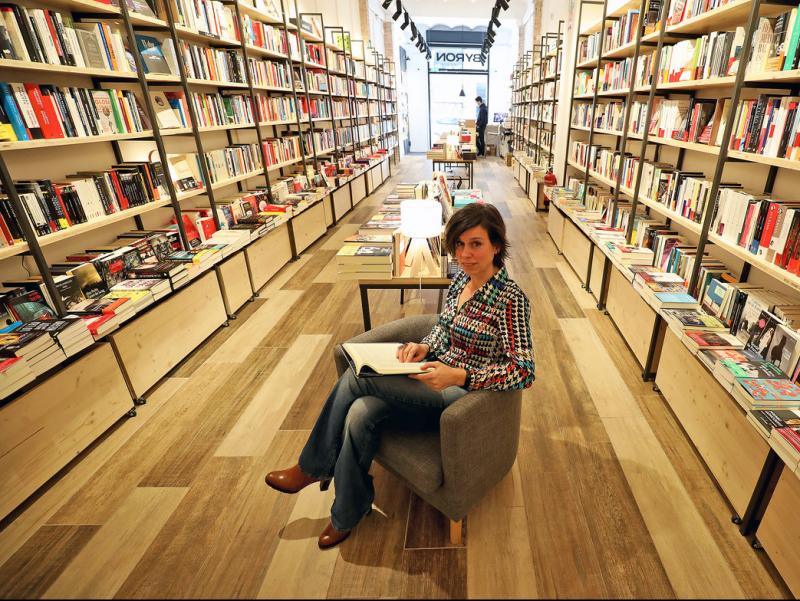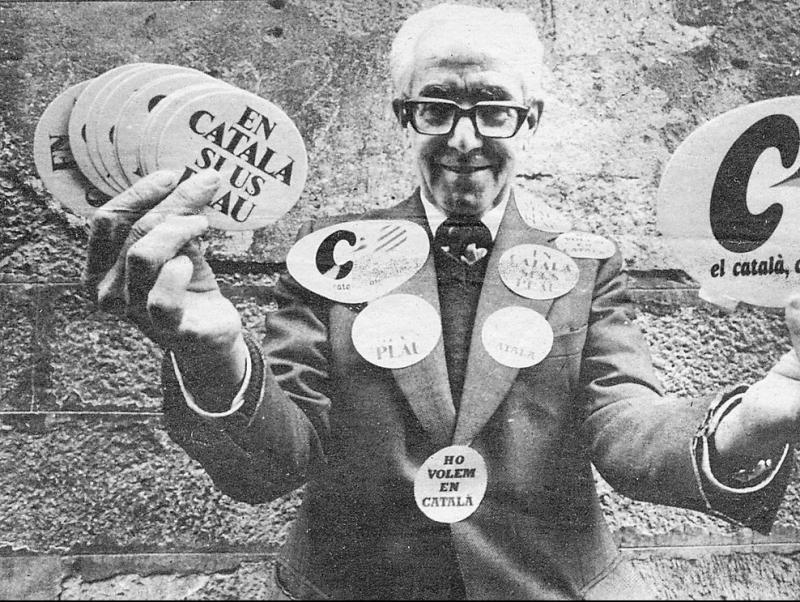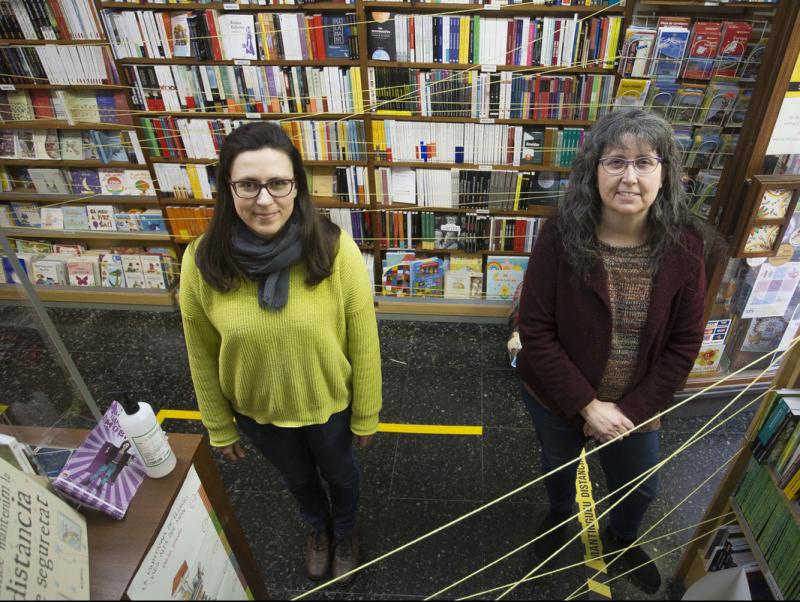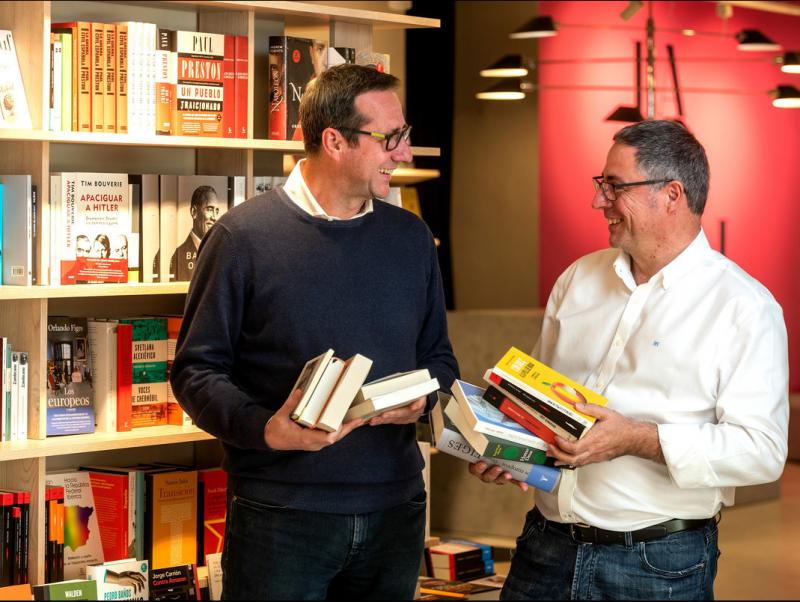Essential reading
After a second Sant Jordi’s Day under the pandemic, bookshops are now officially recognised as essential businesses. The Association of Catalan Booksellers has 234 bookshops, with at least one in each county
“It’s a cultural centre, a meeting place... There’s nothing quite like a bookshop” “WE FOUGHT UNTIL BOOKSHOPS WERE CONSIDERED ESSENTIAL”
After a second Sant Jordi’s Day – Catalonia’s annual celebration of books – held under strict health restrictions, the book sector is still standing. The relationship between bookseller and customer is unlike that in other type of shop, and a bookshop is more than just a retailer: “It’s a cultural centre, a social centre, a meeting place... There’s nothing quite like a bookshop,” says Maria Carme Ferrer, bookseller and head of Catalonia’s Association of Booksellers. The association brings together 234 bookshops, although with other book retailers that do not meet the definition of a bookshop the number of establishments rises to over 800. Ferrer confirms that “the most bookshops are affiliated,” and that 99% of turnover in the sector comes from affiliated members.
There is no county in Catalonia that does not have at least one bookshop, with the typical establishment being “a medium-sized and general, non-specialist bookshop,” although Ferrer points out that after the 2008 financial crisis, a good number of small bookshops began to emerge, many of which were specialist outlets. Is this an indication of the viability of a business like this? Ferrer says that while some have opened, others have closed: “The problem with bookshops is that there is no generational change, but we are seeing new ones with the desire to fill the spaces left empty by others.”
Bookshops are widely considered to be essential and now they are officially recognised as such. In September 2020, in the midst of the turmoil caused by the pandemic, the Catalan government declared culture an essential asset. Yet, this was not enough, as new health restrictions in January meant bookshops had to close on Saturdays like other, non-essential, shops. Yet, the sector persevered and bookshops are now effectively considered essential retail outlets.
“The government considered culture essential and then shut us down. We didn’t understand, but we fought on until we succeeded having bookshops considered essential,” says the association head. The need to keep these havens for books open was not only demanded by the sector but also by readers. “In the past year, they have continued to buy from us on social media, by email, by telephone… It’s the customer who sees bookshops as essential,” adds Ferrer.
While bookshops have been forced to close on many days during the pandemic and have been subject to restricted opening times, sales have not dropped compared to pre-pandemic figures in 2019. In fact, sales have gone up. “Sales have gone well, perhaps not for everyone, as it depends on factors like location, but things have gone really well,” according to Ferrer. Increased sales by themselves, however, do not mean ending the year in the black. Ferrer puts the losses for 2020 at up to 20%, while the percentage of bookshops that have had to furloughing staff is close to 100%. In 2019 (the last year with figures), all bookshops and points of sale in Catalonia had a turnover of 1.21 billion euros, of which 417 million corresponded to bookshops, 252 million to chains, and 99 million to supermarkets, according to the Spanish Federation of Publishers Associations.
The pandemic has changed the way things work: “From the first moment of lockdown we had to rethink a lot of things. We’ve changed the way we host presentations, reading clubs, signings... Everything has changed! We’ve reinvented ourselves and we’ve opted for improving our websites, for home delivery, for social media... It was that or dying,” says Ferrer.
Sant Jordi’s Day
Booksellers were recently able to celebrate their biggest day of the year, Catalonia’s annual celebration of books and reading, Sant Jordi’s Day. In a normal year, the streets of Catalonia would be thronged with people strolling in the spring sunshine, buying books and roses, something that is not possible as long as the pandemic lasts. Yet, on the second Sant Jordi since the pandemic started, at least this year the health restrictions were such that the celebration could be held on April 23 (last year it was moved to July 23) and with bookshops open and even with stalls of books outside for readers to browse, albeit in masks and adhering to social distancing.
Despite the causes for optimism, Ferrer insists the new Catalan government must allocate 2% of the budget to culture: “We don’t want to live on charity, but if there’s aid for other sectors, there should also be help for bookshops,” she says.
feature bookshops
40 years in the same trade
Maria Carme Ferrer (Girona, 1958), who was elected president of Catalonia’s Association of Booksellers three years ago, is the manager of the Empúries bookshop in Girona. “I’ve been a bookseller for 40 years,” she says with satisfaction, and she adds that if she were reborn, she’d choose to be a bookseller all over again. And she says that is even more true now, as the profession has evolved a lot in 40 years. “During that time, the profession of bookseller has changed for the better. Before we weren’t computerised, it was very different. Now it’s a wonder; you click and you know if you have a book or not. Before you had to know it by heart. Now you can dedicate yourself more to recommending and doing other types of management, but you don’t have to memorise where everything is,” she explains.





